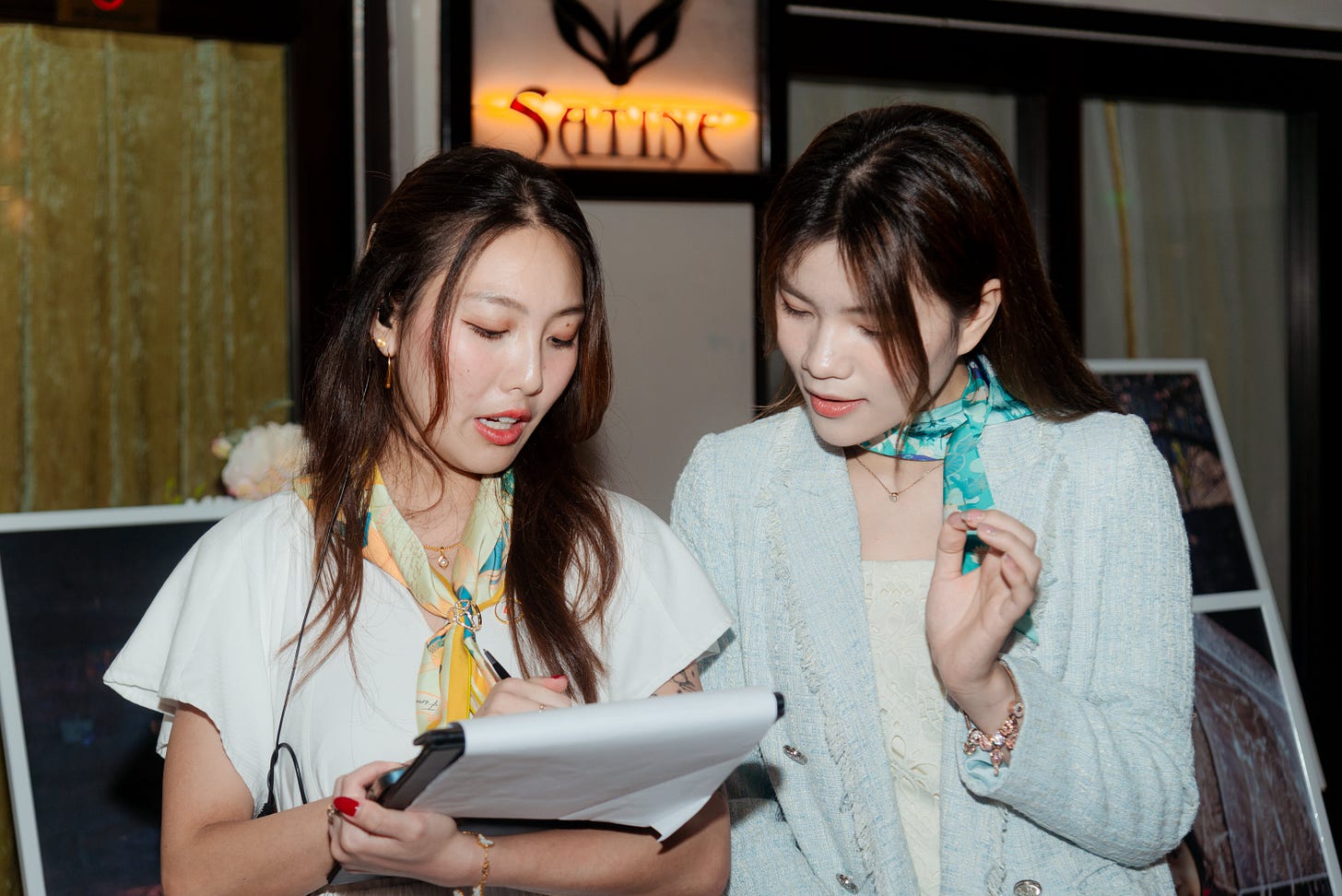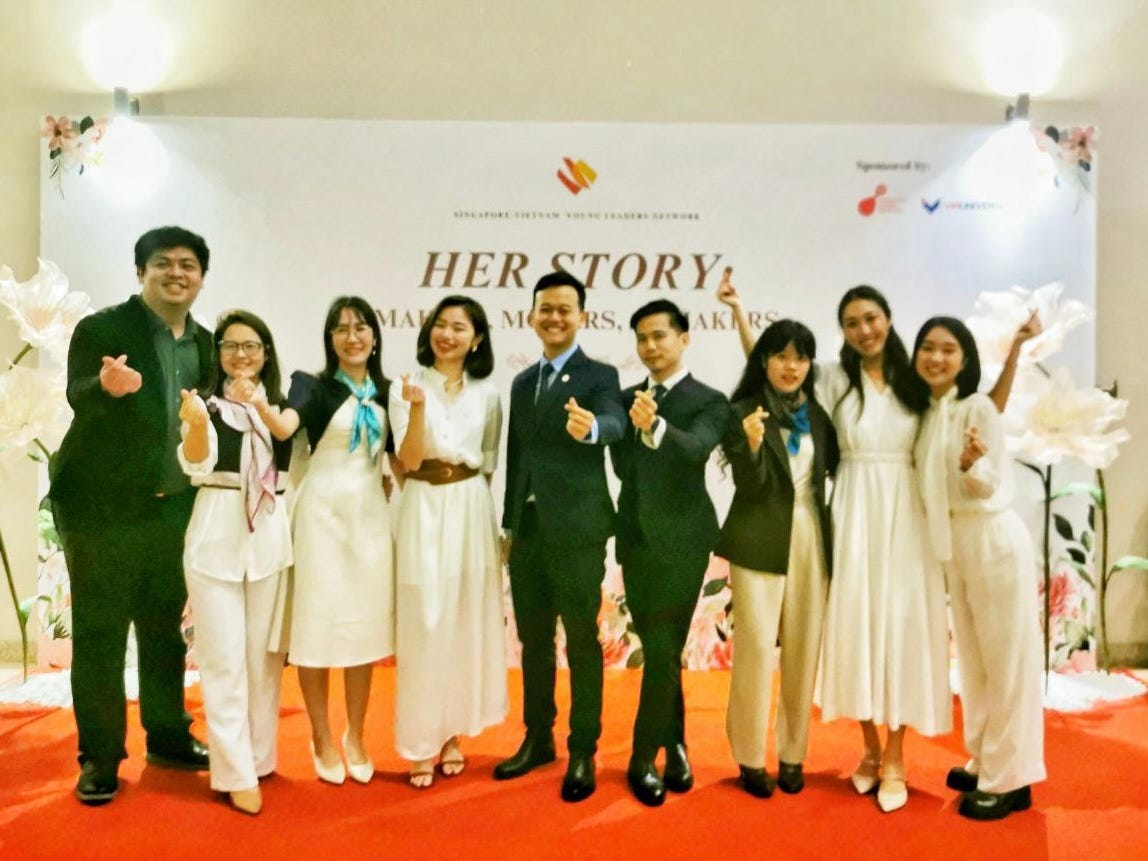This 27-year old Singaporean techie believes that Vietnam was her best career decision yet
What convinced Grace to venture within Southeast Asia, and how she found her footing in a foreign land
MEET THE SEA YOUTH
“Meet the SEA Youth” features ordinary youths in Southeast Asia (SEA) who are venturing within the SEA region, reflecting the current aspirations of these youths, while offering fresh perspectives on the diversity of opportunities in SEA.
“I’ve always wanted to work overseas,” said Grace Tan, a 27-year-old Singaporean who moved abroad to grow a wet wipes manufacturing company in Ho Chi Minh City, Vietnam.
However, Covid-19 hit when she graduated from a Mass Communication course specializing in advertising and research at a Singapore university in 2020. She stayed in Singapore and worked in various roles and companies, from a boutique marketing agency to growth and business development roles in two tech startups.
But she was already drawn to the warmth and hospitality of Southeast Asia during her past travels and expedition trips across the region. Vietnam, in particular, strongly appealed to her.
“After my prior experiences in different roles and traveling around the region, I was even more drawn to Southeast Asia because of how rich these countries are. It's an untapped market, and when they say Vietnam is an emerging economy, it is 100% true—things change so quickly, and you have to be there to experience it.”
And she did not hesitate when the opportunity came to work in Vietnam. While the journey is filled with challenges, it comes with new lessons and reflections for herself. Read on to find out more about her journey in Vietnam, and her future aspirations for the region.
All images courtesy of Grace Tan.
Embracing Southeast Asia
Southeast Asia was always familiar to me.
Since young, I’ve been quite privileged to be able to travel with my family, and my parents are very adventurous—they enjoy visiting places that are off the beaten track. Since Southeast Asia is somewhere that’s very accessible, we have always liked going to Thailand, Indonesia, Malaysia, and eventually Vietnam. However, it was my volunteering and expedition trips to Cambodia and Laos that drew me to Southeast Asia.
The locals were super friendly, and I was greeted with so much hospitality. You get to try their local wines, and they show you how they hunt for food and worship animals. I also saw how locals were so willing to give and support the disadvantaged, like teaching kids for free, and the local food always surprises me. It was always an eye-opening experience, and I realized there are so many ways of life there, and there’s so much to learn from the locals who are very different from you.
People are so different everywhere, and you’ve got to go and see it for yourself.
“Without expectations, you will be pleasantly surprised and will want to be in Southeast Asia. People just need to go in with an open mind.”
The big move to Vietnam
While I was drawn to the diverse lifestyles and cultures of Southeast Asia, I’ve never thought of working in the region. That’s because I grew up following a very practical, “normal” Singaporean route—like getting good grades and finding a well-paying job—which still saw the region as somewhere that didn’t have the opportunities in places like New York, China, or Japan, which are touted as economic hubs.
But I used to travel to Vietnam for just a few days, maybe for a week, whenever I had an opportunity. I visit the different provinces, take the sleeper buses, hike, and trek, and just go wherever I want to go.
The Vietnamese are so warm and welcoming, just like the owner of a hostel that I stayed in. I could spend one hour in the lounge area, learning about his life, where he's from, his hometown, how often he goes home, and how he built his business. They're just so willing to share.
Sometimes they don't speak English, they speak Chinese, which amazes me because there are people who are so curious and love to learn, very hardworking as well. And then he would plan my itinerary for the next day or help me research if I didn't have a plan.
When I'm lost in the city, strangers are always willing to lend me a helping hand. These small gestures keep you coming back for more. The Vietnamese are so kind, so true to themselves, and they don’t ask for anything in return.
I’ve always wanted to work overseas. After my prior experiences in different roles and traveling around the region, I was even more drawn to Southeast Asia because of how rich these countries are. It's an untapped market, and when they say Vietnam is an emerging economy, it is 100% true—things change so quickly, and you have to be there to experience it.
At the same time, Singapore is small if you want to do business, and it is a springboard to the rest of the region instead. I also wanted to take in different perspectives, understand how they approach certain problems and just want to break the mold.
Eventually, it was a no-brainer for me when the wet wipes company offered me a role in Vietnam. I knew that I just had to take it.
Thriving in a new country
I started learning Vietnamese once a week in Singapore, three months before I relocated. I felt that if I wanted to do business in Vietnam, I better speak the language.
But when you go there and communicate in broken Vietnamese, they know that you're not a local, and it is hard to communicate with them. And that’s when I realized that relationships and connections are important in Vietnam.
I was lucky that the company had locals who could help me with the administrative stuff, like getting my work permit done. Also, the country is just full of paperwork–and that’s another challenge in itself. Papers in Vietnamese are not translated, and I had to submit tons of paperwork when applying for policies, but I realized that locals didn’t need to do all this work. So I resonate with the sentiments of foreign business owners here.
Being a foreigner in a new country, I would also want to find a network of local people, but they are quite hidden. I was lucky that I had the support of locals in the company who gave me the necessary support. But I also went hunting for communities to join, like SingCham Vietnam and Singapore Global Network, and that’s when I chanced upon the Singapore-Vietnam Young Leaders Network (SVYLN). It was at SVYLN where I got to know a lot more Vietnamese and got introduced to people who are interested in collaborations between Singapore and Vietnam.
It has also been a journey where I had to do a lot of introspection in my current role. I find out what kind of leader I can be, and how to hedge my bets. Do I put all my eggs in one basket? How do I spread it out? And then what is the direction that I want to go towards? What are my goals?
Finally, I had to learn how to navigate a foreign market: learn what to do, what not to do, and who to talk to, since everything is not as straightforward here—everything is in between the lines.
Nonetheless, it's an exciting time in Southeast Asia.
I can speak for Vietnam—I think we are on the cusp of something really big. I think a “creative revolution” is coming— in the way shops are designed, how experiences are curated, and how people take pride in self-expression.
It’s so exciting that I hope more youths can come and experience it for themselves!
Aspirations for Southeast Asia
I hope that the region will become environmentally sustainable. Most countries in the region are polluted, and I think people don’t realize this is not great. People use a lot of one-piece sachet wipes, and they could just throw things everywhere. More environmental education needs to be done, but with more youths exposed to global affairs through social media, changes will come—and that's my hope.
I also hope for more regional integration. There are so many things Singaporeans can learn from emerging economies, and there’s a lot of cross-cultural collaboration that can happen with young, hungry, and intelligent people. Singapore can share our knowledge on sustainability and urban planning, and regional countries can show us their way of life, traditions, cultures, and how they run their country.
Know a Southeast Asian youth who’s working, studying, or living in another Southeast Asian country, or are you doing so and would like to share your story? Email the editors at tanzhantiam@gmail.com or tianwen.tay@seakoel.com
If you enjoyed today’s article, follow SEAmplified on Instagram and LinkedIn, hit the subscribe button below, or email the editors if you have any feedback for us!








